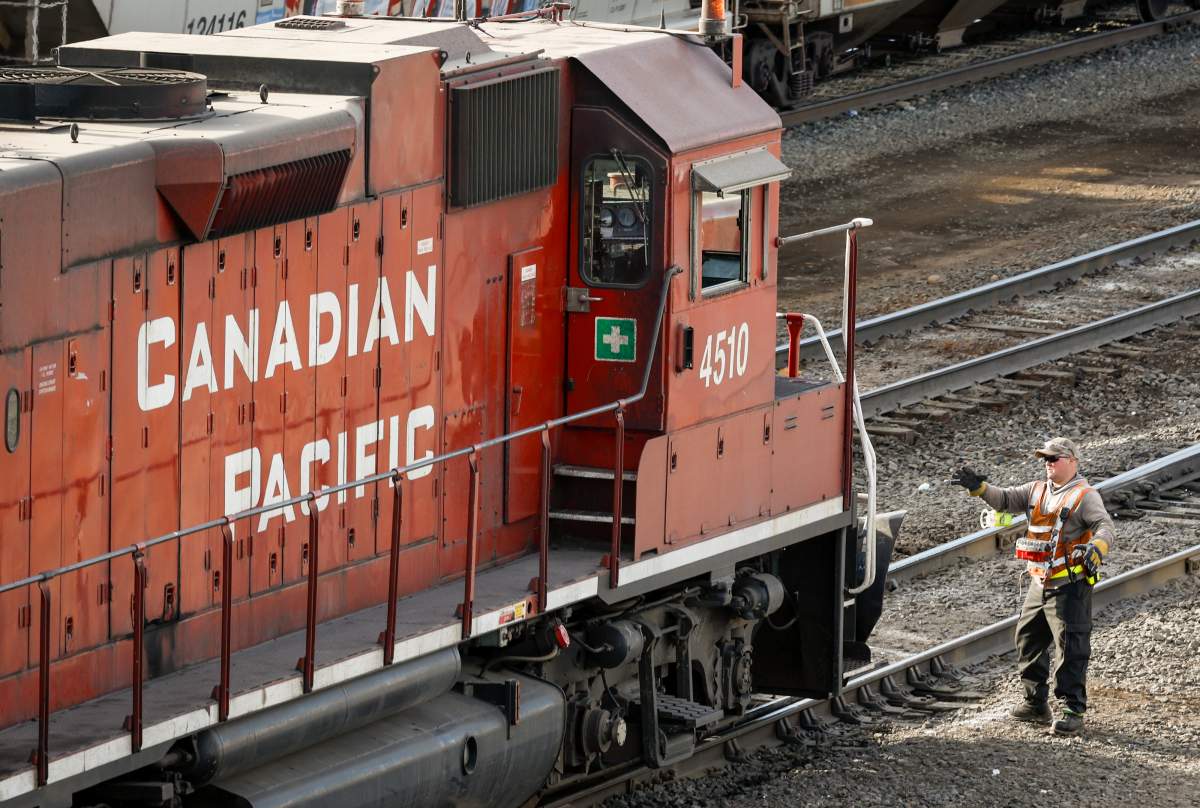Business groups advocating for rail to be declared an essential service in the wake of this week’s temporary work stoppage at Canadian Pacific Railway Ltd. say a “permanent” solution is needed to ease this country’s supply chain woes.

In an interview Wednesday, Fertilizer Canada president and chief executive Karen Proud said that since 2019, her industry has dealt with strikes at Canadian National Railway Co. and the Port of Montreal, in addition to the most recent labour dispute at CP.
That’s on top of other supply chain disruptions that have resulted from COVID-19, natural disasters like wildfires and flooding and recent border blockades and protests.
“We every few years seem to get stuck in the same situation. Sometimes a couple of times a year,” she said. “In the long-term, we’re really hoping that the government will look at this.”
While CP employees are back at work after the Teamsters Canada Rail Conference and the Calgary-based company agreed Tuesday to final and binding arbitration to end a 48-hour work stoppage, Proud said many business groups are jittery about the prospect of future labour-related supply chain disruptions — especially as a number of important collective agreements, including contracts between CP rival Canadian National Railway Co. and its employees, are set to expire later this year.

She said while some of the issues that have plagued Canada’s supply chain in the past two years have been beyond anyone’s control, “man-made issues” like labour disputes can be addressed.

Get daily National news
“I think looking at rail is an essential service is a viable solution,” Proud said. “The question is whether the government is willing to go there.”
In an interview earlier this week, federal Labour Minister Seamus O’Regan said that when the dust from this recent negotiation and work stoppage at CP settles, it may be time for the government to look at finding a way to bring more certainty to future contract talks.
But he said he’s not bullish on the idea of making rail an essential service because that takes away the rights of workers to bargain.
The Western Grain Elevator Association, which represents the country’s grain shippers, said in a recent statement that railways are the “economy’s lifeblood” and must be treated as so.
“We cannot afford to face another massive disruption to our economy where everyday Canadians will pay the price,” the group said in its statement.

While there’s no doubt that rail is a vital piece of the Canadian economy, said University of Manitoba supply chain management expert Barry Prentice, for the federal government to designate railworkers as essential and take away their right to strike would represent a “slippery slope.”
“What about the people operating the grain elevators, because they’re also key in this supply chain? What about the grain inspectors?” Prentice said. “There’s also containers, the truckers who handle the containers off the docks. Where do you stop with this thing?”
However, Prentice agreed that the federal government needs to take action, adding there is a very real risk of labour-related disruptions intensifying along with the rate of inflation as workers seek wage increases that keep up with the spiralling cost of living.
“What (governments) can do is give people some security that they’re not going to let inflation get out of hand. Because if they send the wrong message on that, then we can be assured that there’s going to be more disruptions,” he said.
Michael Gullo, vice-president with the Business Council of Canada, declined to go so far as to say that rail should be designated an essential service. But he said the number of supply chain related disruptions that Canadian businesses have dealt with in recent years are a threat to this country’s reputation as a good trading partner.
“There really needs to be a strong affirmation from our governments that our trade corridors are secure and that Canada’s a reliable investment partner,” Gullo said. “Part of that may mean infrastructure investment, but we also need to think long and hard about how we respond to disruptions. … Frankly, we can’t wait for a national emergency to happen before we act.”







Comments
Want to discuss? Please read our Commenting Policy first.